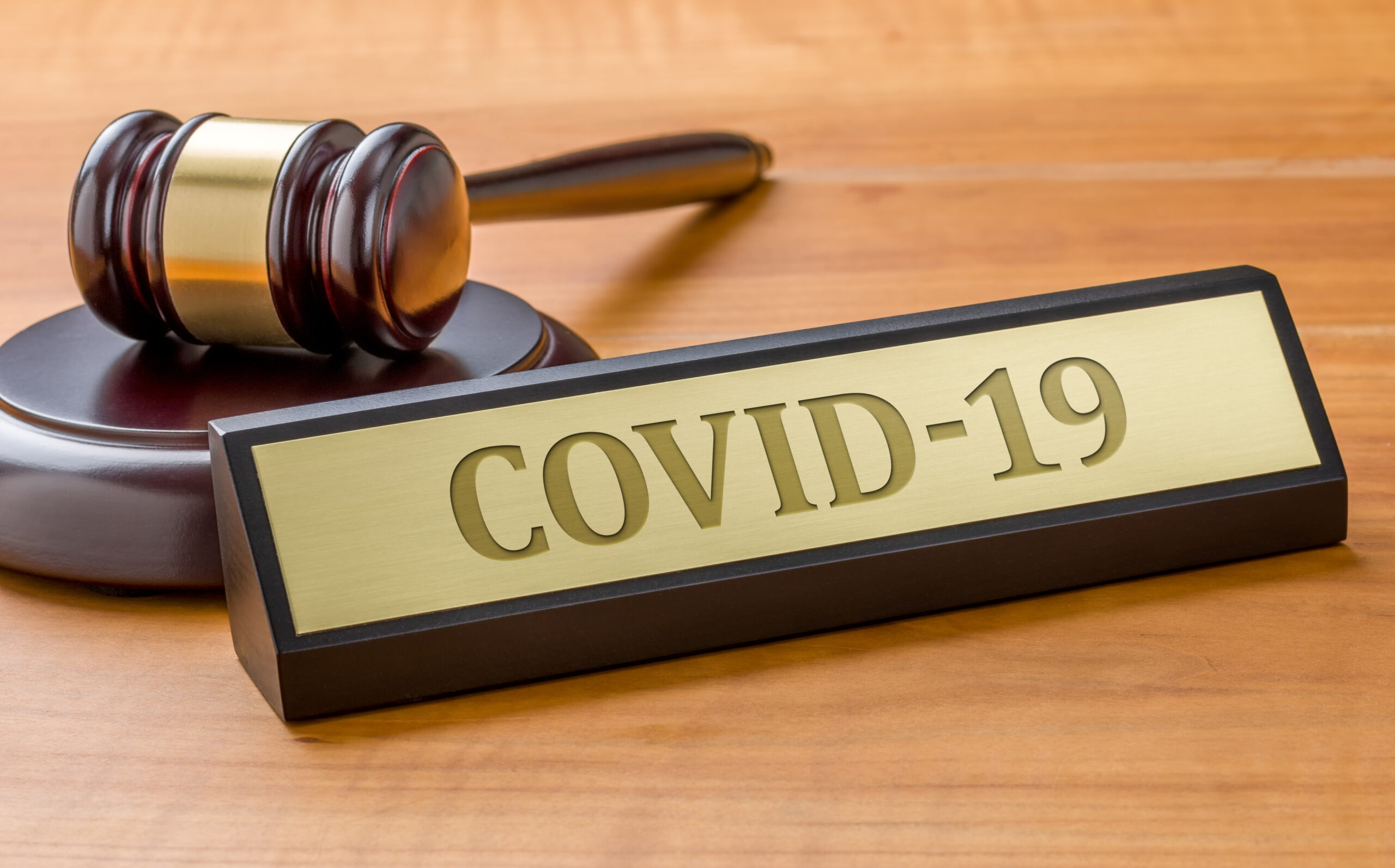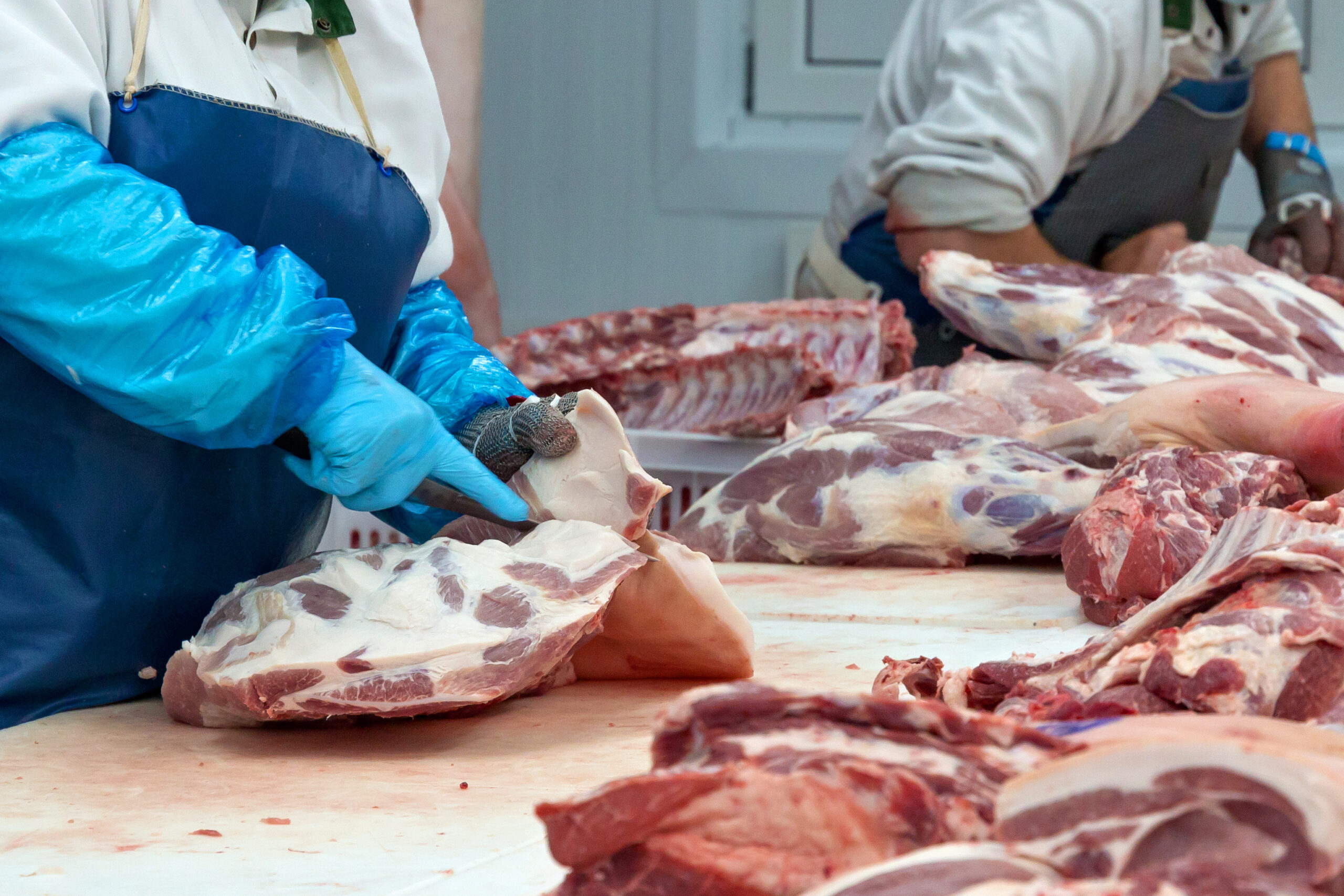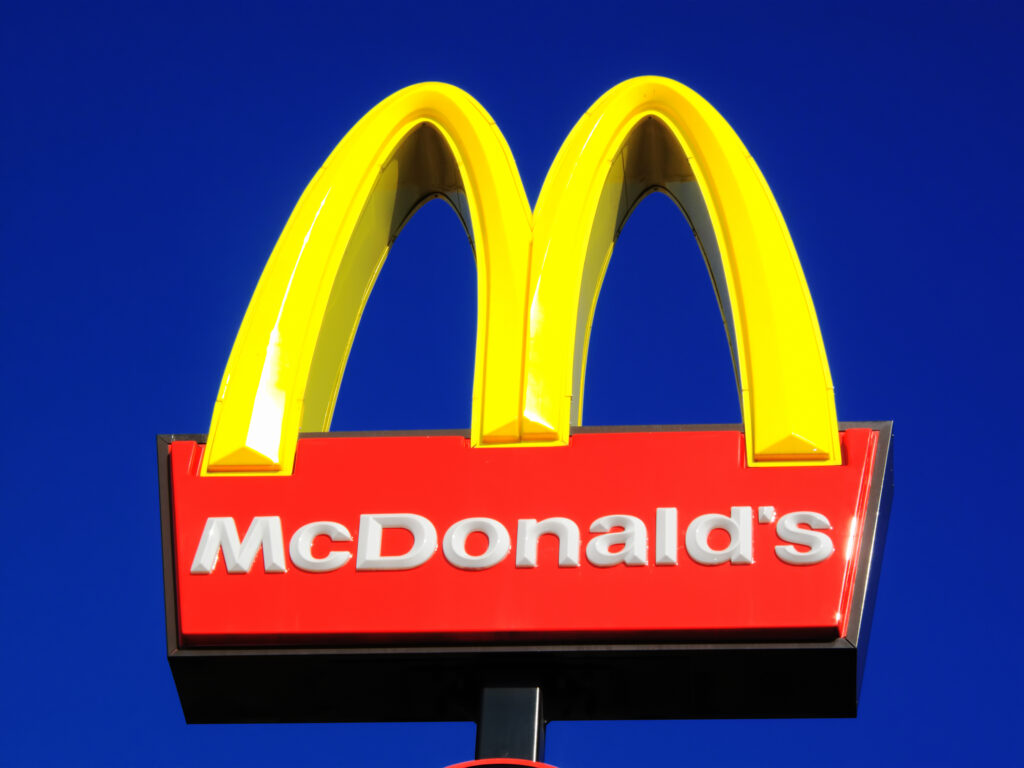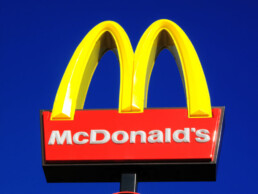Update on COVID-19 Related Legal Issues

The scope of COVID-19 related lawsuits continues to expand as workers across the country are filing lawsuits seeking protection and damages from unfair labor practices. Moreover, there is a sense that more cases will be filed as more employees are impacted by the pandemic and businesses close, sometimes with little or no notice to soon-to-be unemployed workers.
Congress enacts the Families First Coronavirus Response Act
In March 2020, when Congress realized that a shut-down was imminent, Congress passed the Families First Coronavirus Response Act (FFCRA) which requires certain employers to offer employees paid sick leave or expanded family and medical leave for COVID-19 related reasons. Employees must have been employed for at least 30 days to benefit from FFCRA.
In general, the FFCRA provides for two weeks (up to 80 hours) of paid sick leave with regular pay if the employee is unable to work due to quarantine, or experiencing COVID-19 symptoms. Also, under the FFCRA, if an employee is unable to work due to the need to provide care for another individual under quarantine, or if their child’s school or child care provider closes due to COVID-19, the employee is allowed two weeks (up to 80 hours) of paid sick leave at two-thirds regular pay.
When an employee is unable to work in order to provide child care due to schools or child care being closed, employees are eligible for an additional 10 weeks of paid expanded family and medical leave at two-thirds regular pay.
Shortly after the FFCRA was enacted, a federal lawsuit was filed by an Eastern Airlines executive alleging she was fired after she requested time off under the FFCRA. According to the plaintiff, a single mother, she requested two hours of paid time off each day in order to care for her son, whose school was closed due to the pandemic. On the surface, it appears that the FFCRA was enacted to provide assistance to working parents such as the plaintiff in the midst of the pandemic. In this case, however, Eastern Airlines contends that the former employee was terminated on March 27, 2020, prior to the FFCRA taking effect on April 1, 2020.
COVID-19 and the ADA
Since 1990, the Americans with Disabilities Act (ADA) has provided significant protection to persons with disabilities in the workplace as well as society in general. One key aspect of the ADA is the requirement that employers provide reasonable accommodations to qualified employees with disabilities unless the accommodation would result in undue hardship to the employer. This requirement is quite broad and, for example, protects potential employees during the hiring and training process.
What constitutes a reasonable accommodation depends on the nature of the employee’s disability, the necessary duties of the job, the physical workplace and hardship (if any) to the employer. As a result of COVID-19, however, courts have been asked to consider how COVID-19 impacts established law and perhaps the need to re-interpret the meaning of reasonable accommodation under the ADA.
In June 2020, an engineer filed a lawsuit against his employer alleging discrimination in violation of the Massachusetts state ADA. In March, the employee was allowed to work from home in light of a state “stay at home” order. In April, his employer requested that he return to the office for work, but the employee requested he be allowed to continue to work remotely. The employee, who has high blood pressure and cares for his elderly mother, argues that he is at high risk of serious illness if he contracts COVID-19. He also fears transmitting the disease to his elderly mother who suffers from multiple medical conditions that place her at high risk. When his request for a reasonable accommodation, specifically to work remotely, was denied, he refused to return to the office, and was terminated.
Prior to the pandemic, courts did not consider a request to work remotely to be a reasonable accommodation. However, with increased health risks due to COVID-19, courts will be asked to re-consider whether a request to work remotely due to a heightened health risk of contracting or spreading the virus is a reasonable accommodation under the ADA.
More broadly, attorneys are using novel legal arguments in lawsuits based on the unique circumstances due to COVID-19 and the need to protect employees when current labor laws may be insufficient or simply never considered the challenges posed by the pandemic.
Lawsuits Filed after Employees Die From COVID-19
Sadly, some employees have died from COVID-19, and their families have filed lawsuits claiming that the workplace was not safe and employers failed to protect employees from the deadly virus. The key issue is whether employers followed federal and state safety guidelines, and if the employer failed to ensure proper protocols at work, they may be held liable for the death of an employee who contracted COVID-19 as a result of an unsafe workplace. Employers, however, claim that it is very difficult to prove how or where someone contracts the disease.
In one case, the family of a Safeway employee allege that the work environment was not safe because sick employees were still coming to work. Moreover, according to the lawsuit, on March 20, a memo was posted that stated, “If you are healthy, a mask will not protect you from the respiratory drops an infected person coughs out. Open areas of the mask can let those drops in.” The family filed a lawsuit after the employee tested positive for COVID-19 on April 4 and died eight days later. According to the family, Safeway failed to follow guidelines of the Occupational Safety and Health Administration (OSHA) issued on March 9 that required sick employees to be isolated.
Similar lawsuits have been filed against Walmart. In one case against a Walmart in Illinois, an employee was allegedly told to continue to work despite having symptoms, and was eventually sent home two days later when his symptoms worsened. He died two days later. Another Walmart employee in Dallas has filed a lawsuit that alleges she contracted COVID-19 because Walmart failed to provide personal protection equipment (PPE) and failed to follow health guidelines issued by health agencies including the Centers for Disease Control (CDC) and OSHA. As a result, she claims she contracted COVID-19 from the unsafe work environment at Walmart.
FREE CONSULTATION
Srourian Law Firm, with locations in Los Angeles, Westwood, Woodland Hills, and Orange County is experienced in all aspects of employment law including COVID-19 related health and safety violations in the workplace, and have aggressively represented employees in Los Angeles, Hollywood, Santa Monica, Orange, Irvine, Anaheim, Santa Ana, Newport Beach, Costa Mesa, Fullerton, Tustin, Mission Viejo, San Clemente, Garden Grove, Laguna Niguel, Brea, Fountain Valley, Aliso Viejo, Yorba Linda, Westminster, Laguna Hills, Cypress, and La Habra.
If you or someone you know suffered employment violations due to COVID-19 related health and safety violations, you may have certain employee rights under state and federal law, and may be entitled to compensation as a part of a class action lawsuit. Please contact us to speak with one of our lawyers for a free consultation.
Know the Law. Know your Rights.

Workers are generally protected from unfair labor practices by both federal and state laws. California workers, however, benefit from protections guaranteed under some of the country’s strongest labor laws. However, workers must know their rights in order to challenge illegal acts by employers.
What is the WARN Act?
The “WARN Act” or Worker Adjustment and Retraining Notification Act is a federal law that protects workers by requiring employers to give adequate notice to employees before a mass layoff or closing of a work site. Most states have “mini WARN Acts” which provide similar protections under state law.
The purpose of the WARN Act is to provide employees with sufficient notice of an impending job loss so that they can secure other employment or seek training to pursue a different job. Under the WARN Act, workers are entitled to 60-day notice prior to a mass layoff or closing with some exceptions.
Who is protected under the WARN Act?
In general, the WARN Act protects employees of companies with over 100 active full-time employees including private and public companies as well as non-profit organizations. The Act protects both salaried and hourly employees, but employees must be employed for at least six of the previous 12 months, and must work more than 20 hours a week.
When must an employer give a 60-day notice?
According to the WARN Act, employers must give a 60-day notice in advance of a mass layoff or closing of a work site. The layoff must also be expected to last more than six months. In other words, a temporary layoff or short furlough would not necessarily require a warning under the WARN Act. However, the WARN Act is triggered when any of the following is expected to occur:
• a reduction of at least 33 percent and of at least 50 employees during any 30-day period
• at least 500 full-time employees will be laid off
• closing of a work site will reduce employment by at least 50 employees.
The WARN Act also requires notice be given prior to the “sale of part or all of an employer’s business,” but courts have wrestled with whether this must also result in the termination of employees, and what constitutes a “sale.”
As with many legal issues, you should discuss your situation with an experienced labor attorney to determine whether your rights have been violated.
What happens if an employer fails to comply with the WARN Act?
The federal penalties for violating the WARN Act can be considerable and include paying employees back pay and benefits during the period of violation. In some circumstances, a business is also required to give advance notice to local government officials before the closing of a work site, and failure to provide notice can result in civil penalties.
How has COVID-19 affected the WARN Act?
Needless to say, COVID-19 has resulted in a significant number of layoffs and closures. When the pandemic caused many businesses to shut down in March 2020, the shutdown was largely expected to be temporary. However, as the shutdown continued, employers who failed to provide notice of a mass layoff or closure may argue that the extended layoff (beyond six months) was reasonably unforeseeable, and therefore no WARN notice was required. Under the WARN Act, there are exceptions to the notice requirement. Specifically, the exceptions include “unforeseeable business circumstances” that cause a layoff or business closure.
Whether a WARN Act violation has occurred during the pandemic is often unclear. Each case will depend on the specific facts, so it is important to consult with an experienced labor law attorney to assess your specific case.
For example, a lawsuit has been filed in Florida federal court against Enterprise Rent-a-Car alleging a violation of the WARN Act when an employee was laid off with no notice last April. The plaintiff argues that the reduction in work force was not “unforeseeable” because the company furloughed employees in mid-March when the pandemic initially forced many businesses to shut down.
Does the CA Warn Act provide more protection than the federal act?
Yes. California labor laws generally provide stronger protection to workers than federal law, and the CA Warn Act is no exception. For the most part, the state act is similar to the federal act except the CA Warn Act covers a broader range of employees. In other words, under the CA Warn Act, more workers are entitled to advance notice under the act.
The most significant difference however is the CA Warn Act does not make an exception for “unforeseeable circumstances.” In other words, unlike federal law, businesses may not argue that layoffs or closures due to COVID-19 were due to unforeseeable circumstances, and therefore, advance notice was not required.
Other important differences provide significantly more protection to workers during the pandemic. Unlike federal law, the CA WARN Act applies to temporary job loss regardless of the duration. California law, however, also has exceptions that excuse a business from giving notice. Specifically, the CA WARN Act has exceptions for layoffs due to “physical calamity” or “faltering business.” It is unclear, however, how the courts will define the exceptions, particularly in light of an executive order signed by Governor Gavin Newsom allows for a more flexible notice requirement if certain circumstances are met. This executive order is similar to a federal provision that allows some employers to give notice when “practical” when certain conditions are met and 60-day notice was not given.
FREE CONSULTATION
Srourian Law Firm, with locations in Los Angeles, Westwood, Woodland Hills, and Orange County is experienced in all aspects of employment law including WARN Act violations, and have aggressively represented employees in Los Angeles, Hollywood, Santa Monica, Orange, Irvine, Anaheim, Santa Ana, Newport Beach, Costa Mesa, Fullerton, Tustin, Mission Viejo, San Clemente, Garden Grove, Laguna Niguel, Brea, Fountain Valley, Aliso Viejo, Yorba Linda, Westminster, Laguna Hills, Cypress, and La Habra.
If you or someone you know suffered employment violations due to a WARN Act violation, you may have certain employee rights under state and federal law, and may be entitled to compensation as a part of a class action lawsuit. Please contact us to speak with one of our lawyers for a free consultation.
Worker Sue Department of Labor For COVID-19 Protection
The Occupational Safety and Health Act (OSHA) protects employers from workplace hazards. The scope of protection offered by OSHA is broad and ensures not only a safe work environment free from physical hazards, but also requires employers to provide necessary safety equipment and provides specific guidelines that employers must follow. Since COVID-19, workers have been rightfully concerned with safety, particularly when employers do not provide adequate personal protection equipment (PPE) or modify the workplace to allow for social distancing as recommended by health agencies including the Centers for Disease Control (CDC).
Unfortunately, there is growing criticism that OSHA has been slow to respond and has failed to protect the thousands of workers that have filed safety concerns with the agency. As a result, workers have been forced to work in unsafe conditions as they wait for OSHA to respond to safety complaints which has always been slow, but has come to a virtual standstill due to the increased number of complaints filed in light of increased safety concerns due to COVID-19. Also, since OSHA does not allow workers the right to sue employers directly for alleged safety violations, attorneys have found novel ways to advocate for employees who are concerned with their safety at work and must be protected immediately.
Some workers have filed novel lawsuits against employers under a public nuisance theory. Currently, lawsuits are pending against McDonald’s and Amazon alleging that the companies’ failure to adopt COVID-19 related safety measures has created a risk of public harm because of the increased risk of spreading the virus if workers contract the disease due to workplace safety violations. Therefore, workers are seeking the court’s assistance to order compliance with safety guidelines to protect the health and safety of employees as well as the public. Already, courts have ordered McDonald’s to increase safety measures, and Amazon no longer penalizes employees for taking time to wash hands as recommended by the CDC.

Another way that workers are able to bring their allegations to court is a little-known provision of OSHA that allows workers to seek a court order to compel OSHA to act when the Department of Labor (which enforces OSHA) “arbitrarily or capriciously fails to seek relief.” In other words, workers can ask a court to order the agency to take action against an employer to ensure the workplace is safe in the midst of the pandemic.
In a lawsuit filed in July by meatpackers at a Maid-Rite Specialty Foods factory in Pennsylvania, the workers are asking the court to order the Department of Labor to issue an OSHA citation because the workplace does not allow for appropriate social distancing and masks have not been provided. In this case, OSHA refused to investigate, and instead concluded that there was no “imminent danger” to workers despite the fact that the meatpacking industry has been the source of several COVID-19 related outbreaks across the country.
Specifically, workers allege several safety concerns including Maid-Rite has not modified the production line to allow for social distancing; fails to provide cloth mask; does not allow for enough time for hand washing; and has policies that encourage sick employees to work. By suing the Department of Labor, the employees are challenging the agency’s decision not to investigate and asking the court to compel the agency to protect the health and safety of employees by issuing an OSHA citation for the on-going safety violations. The case is currently pending in the U.S. District Court for the Middle District of Pennsylvania and will certainly have a significant impact on COVID-19 related litigation across the country if Judge Malachy Mannion agrees with the workers and compels the Department of Labor to issue OSHA citations for safety violations.
FREE CONSULTATION
Srourian Law Firm, with locations in Los Angeles, Westwood, Woodland Hills, and Orange County is experienced in all aspects of employment law including health and safety violations in the workplace, and have aggressively represented employees in Los Angeles, Hollywood, Santa Monica, Orange, Irvine, Anaheim, Santa Ana, Newport Beach, Costa Mesa, Fullerton, Tustin, Mission Viejo, San Clemente, Garden Grove, Laguna Niguel, Brea, Fountain Valley, Aliso Viejo, Yorba Linda, Westminster, Laguna Hills, Cypress, and La Habra.
If you or someone you know suffered employment violations due to health and safety violations, you may have certain employee rights under state and federal law, and may be entitled to compensation as a part of a class action lawsuit. Please contact us to speak with one of our lawyers for a free consultation.
Workers File Lawsuits to Protect the Public from COVID-19

As the country continues to battle the pandemic, workers across the country continue to voice concerns for their safety and many have filed lawsuits in order to force employees to provide adequate protections in the workplace. While workers are generally protected from hazards in the workplace by the Occupational Safety and Health Act (OSHA), the process can be slow because complaints to OSHA must be investigated and violations must be found before the agency can force a business to act or face penalties. Moreover, OSHA does not allow workers to sue employers.
In order to ensure their health and safety during the pandemic, some employees have taken a novel approach by filing lawsuits under a public nuisance theory. Under this theory, workers allege employers are creating a public harm by failing to protect employees from contracting COVID-19, and therefore can seek injunctions which would force employers to implement stricter safety precautions to reduce the spread of COVID-19 and therefore ensure public safety.
Obviously, health and safety concerns must be addressed quickly so workers can continue to work in safe environments and reduce the risk of contracting COVID-19. Employers must protect their employees from all hazards in the workplace, and if they fail to ensure proper procedures, workers must seek quick remedies not only for their own health, but for the health and safety of their families and the public.
Employees of McDonald’s Allege a Public Safety Risk
Workers in Chicago allege several local McDonald’s restaurants have failed to implement appropriate safeguards. By placing workers at risk of contracting COVID-19, the workers argue that the employers therefore pose a risk to public safety. Specifically, employees allege they lack sufficient personal protection equipment (PPE) including masks and gloves; reported crowded work spaces that does not allow for proper social distancing; and failed to notify employees when co-workers tested positive for the virus. Five employees of four Chicago area McDonald’s restaurants filed a lawsuit in May which led to a court issuing an injunction and ordering McDonald’s to implement stricter safety protocols and training. While the judge declined to find McDonald’s acted negligently, Judge Eve Reilly held that the four restaurants identified in the lawsuit failed to ensure appropriate safety precaution to protect employees and the public from COVID-19 and therefore “endangering public health.”
Similarly, a judge in Alameda County granted a temporary court order requiring a McDonald’s franchisee in Oakland, CA to increase protective measures after employees filed a lawsuit alleging sick employees were required to work despite having symptoms of COVID-19. Moreover, employees allege that they were not provided masks and were forced to make masks out of coffee filters. The employees went on strike in May, and filed a lawsuit in June. A judge quickly ordered the restaurant to implement protective measures that included social distancing, sufficient PPE and employee temperature checks.
McDonald’s operates approximately 14,000 restaurants in the United States, and employees should consult an experienced labor law attorney if they are being placed at risk due to inadequate safety protocols at work.
Amazon Workers Claim Inadequate Contact Tracing Harms the Public
A federal lawsuit filed in New York by employees of Amazon allege the online retailer failed to implement appropriate safety measures to protect workers and the public from contracting COVID-19. Specifically, employees of an Amazon warehouse in Staten Island, NY claim that Amazon did not provide adequate PPE, penalized workers for time spent washing hands, and failed to follow proper contract tracing to stop the spread of the virus. For example, one employee claims in the lawsuit filed in June that despite being in close contact with a supervisor that contracted COVID-19, the employee was required to report to work the next day. This was inconsistent with safety guidelines issued by health agencies including the Centers for Disease Control (CDC) which would require isolation, and creates a risk of spreading the virus to the employee and the public.
In July, the employees withdrew a request for a preliminary injunction after Amazon assured employees that they would not be penalized for time needed to wash their hands or take other preventative safety measures in the workplace. In other words, productivity would not be reduced when employees took time to wash their hands pursuant to CDC guidelines. The other claims remain in dispute including whether Amazon has proper contact tracing procedures in place and whether the company’s paid leave policies was complaint to state law.
With the upcoming holidays, Amazon is known to hire as many as 200,000 seasonal employees to meet the increase in sales. This holiday season will be the first since the pandemic started, so workers should understand that they have rights and employers must ensure their safety at work. Moreover, if a worker requests that proper safety guidelines required by health agencies such as the CDC be followed at work or files a complaint, the employer may not retaliate against the employee. If you feel unsafe at work, speak to an experienced labor law attorney to protect your rights and ensure your safety, as well as the safety of the public.
FREE CONSULTATION
Srourian Law Firm, with locations in Los Angeles, Westwood, Woodland Hills, and Orange County is experienced in all aspects of employment law including health and safety violations in the workplace, and have aggressively represented employees in Los Angeles, Hollywood, Santa Monica, Orange, Irvine, Anaheim, Santa Ana, Newport Beach, Costa Mesa, Fullerton, Tustin, Mission Viejo, San Clemente, Garden Grove, Laguna Niguel, Brea, Fountain Valley, Aliso Viejo, Yorba Linda, Westminster, Laguna Hills, Cypress, and La Habra.
If you or someone you know suffered employment violations due to health and safety violations, you may have certain employee rights under state and federal law, and may be entitled to compensation as a part of the class action lawsuit. Please contact us to speak with one of our lawyers for a free consultation.




